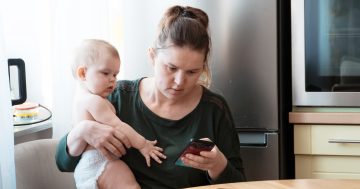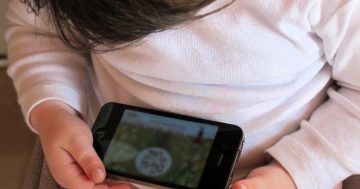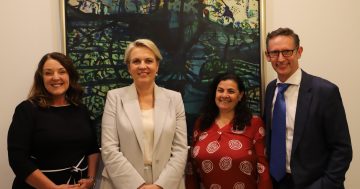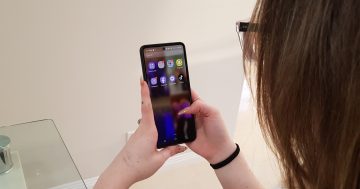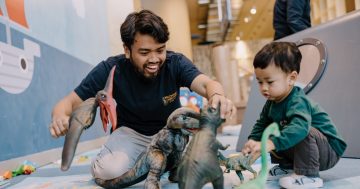
Parents face a real challenge when it comes to managing their kids’ internet use safely. Photo: Envato Elements.
Do screens poison children’s minds – or are they an essential tool?
Researchers at the University of Wollongong have received hefty grants from the NSW Government to explore how screen use affects kids, and how it can be changed for the better.
The government has awarded $978,192 across three projects, undertaken in collaboration with other universities.
Dr Tiffani Apps from UOW’s School of Education is a lead member of two studies, one on how video games affect wellbeing and another on the best practice for screens in education.
Dr Apps said screens often copped the blame for behaviours that were a normal part of childhood development.
“It’s normal for people to do things that are enjoyable, like play video games,” she said.
“If you’re in that flow state and someone disturbs it without warning, it’s pretty normal to have a big emotional reaction, like a tantrum, especially if you’re too young to have developed emotional regulation skills.
“By the same token, we see that negative impacts of gaming are associated with playing for more than four to five hours a day.
“If you did anything for that amount of time it would have a negative impact on your wellbeing.”
Dr Apps has spent the past 15 years researching children and young people’s use of technology.
Before that she was a primary school teacher and technology coordinator.
She said one of the biggest challenges for parents navigating screen time with their kids was the myth that kids had a natural ability to navigate the digital world.
“Tablet and phone technologies, and the apps on them, are designed to be intuitive and accessible for children and young people,” she said.
“Finding a video on your phone isn’t a sign a child has good digital literacy.
“Can they tell you who made that video, how it’s created, or regulate their emotions around it?
“Those are the skills children need to develop to navigate the online world.
“The literacy and critical thinking they need to be able to do that are skills developed through direct conversations and modelling from their parents, teachers and peers.”
Another challenge for parents is mixed messages.
Between warnings about screen time and the importance of digital literacy for employment, it can be tough to know where to draw the line.
Dr Apps said if parents were worried, it showed they cared – but there might be nothing to fear.
“It can feel a bit lonely parenting in this generation,” she said.
“We can’t turn to our parents for advice because they didn’t have these challenges, and we often have a nostalgic view of our own childhoods that feeds into that fear.
“There’s also a bunch of research that shows the digital world has benefits for young people, especially those who are more diverse, live remotely, or are excluded.
“Gaming can be a source of social connection, play and joy for those children.
“It’s a really confusing time.
“I’m so excited the Department of Education is funding this research so we can step away from that alarm and look really closely at how we can protect children by helping them develop the skills and knowledge they need to participate safely.”









